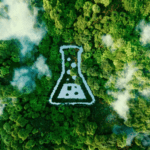The rising importance of supply chain due diligence
The demand for transparency and traceability has increased in recent years, bringing with it a plethora of regulations and frameworks which require companies to have full visibility of their supply chains.
Not only have requirements for reporting risen, but companies are increasingly expected to be able to mitigate their impacts through due diligence measures.
This has become particularly important for the textile and apparel industry, with its complex, global supply chains that often lack transparency. The industry has long been associated with risks of forced labour, child labour, poor working conditions, and negative environmental impacts.
Therefore, the introduction of stricter requirements for transparency and due diligence are welcome additions to the industry, and are quickly becoming critical necessities, rather than optional or desirable features.
Regulation of supply chain transparency
Due diligence has become formalised with the introduction of legislation such as the EU’s Corporate Sustainability Due Diligence Directive (CSDDD), which requires companies to identify and address human rights and environmental risks, taking steps to prevent, mitigate, and remedy negative impacts.
There is also an increase in requirements for transparency and due diligence in supply chains associated with specific commodities, such as the EU Deforestation Regulation (EUDR), or the Uyghur Forced Labor Prevention Act (UFLPA) in the US.
These only scratch the surface in terms of supply chain due diligence regulations. The following table gives some examples of the current, proposed, and upcoming global supply chain traceability legislation.
| EU / UK | Corporate Sustainability Due Diligence Directive EU Deforestation Regulation EU Forced Labour Regulation France AGEC Law France Duty of Vigilance Law Germany Supply Chain Due Diligence Act Norway Transparency Act The Netherlands Child Labour Due Diligence Act UK Modern Slavery Act |
| US | California Climate Corporate Data Accountability Act US Supply Chain Resiliency Act US Uyghur Forced Labor Prevention Act |
| Global | Australia Modern Slavery Act Canada Forced Labour in Supply Chains Act Mexico Forced Labour Regulation |
Reports from the industry
Danish fashion retailer Bestseller recently released a new report demonstrating increased supply chain transparency, providing information on the sourcing practices, and management of human rights, environmental, and product safety risks of their supply chains. Subsidiary brands to the retailer include Only, Jack & Jones, and Vero Moda.
The report aims to provide insights to industry partners, regulatory bodies, and NGOs into their due diligence policies and efforts made towards reducing their social and environmental impacts. Rather than making claims of due diligence, they are demonstrating how they are acting responsibility, giving a clear overview of the policies and frameworks the company uses to identify and manage risks throughout its supply chain.
This is a great step forward for the industry, and highlights deepening commitments to supply chain transparency and due diligence measures. As regulations increase along with consumer expectations, companies with strong due diligence processes will be better positioned to navigate this evolving landscape, ensuring their resilience and credibility.
Start your transparency journey
Eurofins offer a range of tools designed for traceability and transparency, such as our cotton origin verification testing and supply chain mapping services.
We have also recently launched our EUDR Deforestation Impact Assessment, helping companies achieve compliance with the EU Deforestation Regulation.
Contact us today to learn how we can support your business.





